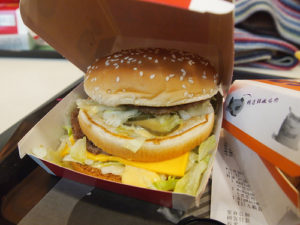Cost of Living Soars in Brazil
By Sarah de Sainte Croix, Senior Contributing Reporter
RIO DE JANEIRO, BRAZIL – Brazil’s two biggest cities, Rio and São Paulo, have been ranked amongst the top fifteen most expensive cities in the world for expats, according to Mercer’s Worldwide Cost of Living Survey published last month. The report has Luanda, Angola as the world’s most expensive city for expatriates in the second year in a row, and for the Americas, São Paulo and Rio de Janeiro, Brazil top the list.

With soaring real estate costs and strong real against the dollar, São Paulo and Rio de Janeiro are the most expensive cities in the Americas, image recreation.
The survey ranks São Paulo as the tenth most expensive city in the world (up eleven places since last year), and Rio de Janeiro as the twelfth (rising seventeen places). New York, North America’s most expensive city, lags far behind in just 32nd place, making Brazil the most expensive country in the Americas. London and Paris occupy eighteenth and 27th place, respectively.
The Mercer Report, which is published annually, is designed to help multinational companies and governments determine compensation allowances for their expatriate employees. It measures the comparative cost of 200 items in each of the 214 cities covered by the survey against prices in New York City. These items include housing, transport, food, clothing, household goods and entertainment.
Brazil’s astronomical rise through the rankings can be explained in part by the recent housing boom. Property prices in Rio de Janeiro have risen by 16.1 percent since last year, and rental prices have gone up by around 100 percent in some areas of the Zona Sul.
Nathalie Constantin-Métral, the survey’s senior researcher, commented, “The cost of housing – often the biggest expense for expatriates – plays an important part in determining where cities are ranked”.
Because the findings are measured against a base line in New York, another crucial factor is the growing strength of the real against the dollar. Mercers says, “The US dollar has weakened significantly against some currencies, including the Brazilian real. So the Cost of Living indices for U.S. expatriates will continue to increase to reflect the need to use more U.S. dollars to buy the same number of host currency units.”

Brazil's Big Macs are the second most expensive in the world, photo by John Sember/Flickr Creative Commons License.
A third factor is the ever increasing cost of goods and services in Brazil. A recent survey by Veja magazine found the average cost of a forty inch LED TV screen in Brazil to be R$2,000, compared to R$1,700 in France and R$1,100 in the United States.
Similarly, a minute’s cell phone talk time costs on average R$0.60 in Brazil, R$0.44 in France, and in the U.S., just R$0.17. A Brazilian Big Mac is also amongst the most expensive in the world, second only to Switzerland.
In global terms, Brazil’s inflation rate (currently at around six percent) is relatively high, but even with this in mind, prices are still soaring. Businesses blame increasing logistics, utility and rental costs, combined with high staffing costs as a result of Brazil’s employment laws, which are tipped very much in favor of the employee.
High taxes are another determining factor. On the price of a car in Brazil, for example, the consumer will pay around thirty percent of the total value as taxes, compared to sixteen percent in France, and just six percent in the U.S.
British expat Rebecca Smythe commented, “I only buy clothes and things when I go back to England – it’s just too expensive here now. I am struggling to afford my rent even.”

No comments:
Post a Comment